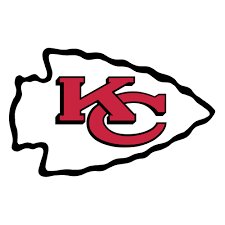ESPN News : behind my career…..
Every journey has its beginnings, and mine unfolded against the backdrop of a small town, where my passion for sports ignited. As a child, I was captivated by the thrill of competition, the stories behind the games, and the vibrant personalities of athletes. Little did I know that this fascination would lead me to a career at ESPN, a network synonymous with sports news and culture. This reflection aims to chronicle my journey, the challenges I faced, and the milestones that defined my career.
Early Influences
Growing up, sports were a vital part of my life. My family gathered around the television to watch games, and I often found myself emulating my favorite players in the backyard. This enthusiasm soon evolved into a keen interest in sports journalism. I remember picking up a pen and notebook to document local games, dreaming of one day sharing those stories on a larger platform.
In high school, I joined the school newspaper, where I wrote articles about various sports teams. This experience taught me the fundamentals of reporting and ignited my desire to pursue journalism professionally. My teachers encouraged me to hone my writing skills, emphasizing the importance of storytelling in sports. Their guidance laid the groundwork for my future endeavors.
Education and Entry into Sports Journalism
After high school, I enrolled in a reputable journalism program at university. The coursework was rigorous, covering everything from media ethics to digital reporting. I interned at the campus radio station, where I learned how to produce sports segments and conduct interviews. These experiences solidified my aspiration to work in sports journalism.
My big break came during my junior year when I landed an internship with a local sports news station. There, I assisted with coverage of high school sports events, conducted interviews, and contributed to online articles. The fast-paced environment taught me how to think on my feet and adapt to changing circumstances—a skill crucial in the world of sports journalism.
The Path to ESPN
Upon graduation, I applied to various sports networks, hoping to secure a position that would allow me to combine my passion for storytelling with my love for sports. After several months of applications and interviews, I received an offer from ESPN for a junior reporter position. I was ecstatic—this was the opportunity I had worked so hard for.
My first days at ESPN were both exhilarating and intimidating. I was surrounded by seasoned professionals, each with a unique style and approach to reporting. I quickly realized that I had much to learn. My responsibilities included researching stories, writing articles, and covering live events. I immersed myself in the ESPN culture, studying the network’s tone and style to ensure my work aligned with its standards.
Challenges Faced
The transition into such a prominent organization was not without challenges. The competition was fierce, and I often felt the pressure to deliver exceptional content. There were moments of self-doubt, particularly during live broadcasts when mistakes were glaringly apparent. However, I learned to view these challenges as opportunities for growth. Feedback from my colleagues, both positive and constructive, became invaluable in refining my skills.
One of the most significant hurdles I faced was covering controversial topics in sports, such as player protests and issues of race and equality. These stories required sensitivity and a deep understanding of the broader implications. I dedicated myself to thorough research, seeking diverse perspectives to ensure my reporting was fair and comprehensive. This approach not only improved my work but also deepened my appreciation for the complexity of sports as a societal reflection.
Professional Growth
As I gained experience, I was entrusted with more significant responsibilities. I had the opportunity to cover major sporting events, from the Super Bowl to the World Series. Each assignment came with its own set of challenges, but they also offered incredible rewards. The atmosphere at these events was electric, and being able to share those moments with viewers was a dream come true.
Networking played a crucial role in my career development. I reached out to seasoned journalists and producers, seeking mentorship and guidance. Their insights proved invaluable, helping me navigate the intricacies of the industry. I also took advantage of professional development opportunities, attending workshops and seminars to refine my skills and stay updated on industry trends.
Expanding My Role
Over the years, I transitioned into a more prominent role, eventually becoming a lead reporter. This shift involved not only reporting but also producing segments and collaborating with producers on story ideas. I developed a reputation for covering in-depth features that highlighted the human side of sports. This approach resonated with audiences and allowed me to forge a deeper connection with the stories I told.
One of my proudest achievements was a feature series on athletes who overcame significant adversity. These stories not only showcased their athletic prowess but also their resilience and determination. The positive response from viewers reaffirmed my belief in the power of storytelling and its ability to inspire.
The Digital Evolution
As the media landscape evolved, so did my role. The rise of digital media transformed how sports news was consumed. I embraced these changes, adapting my reporting to include social media platforms and digital storytelling techniques. Understanding the importance of engaging with audiences online became a priority, and I worked to build my presence on platforms like Twitter and Instagram.
This digital shift also presented new challenges, such as the need for rapid reporting and the prevalence of misinformation. I made it a point to prioritize accuracy and credibility, ensuring that my reporting upheld the standards of journalism that I valued.
Reflections on Impact
Looking back on my career at ESPN, I am proud of the impact I have made. Through my reporting, I aimed to not only inform but also connect with audiences on a deeper level. The stories I told were not just about scores and statistics; they were about the people behind the games—their struggles, triumphs, and the broader societal issues reflected in sports.
I have had the privilege of interviewing athletes, coaches, and fans, each contributing to the rich tapestry of sports culture. These interactions have reinforced my belief in the power of sports as a unifying force, capable of bridging divides and fostering understanding.
### Conclusion
As I continue my journey with ESPN, I remain committed to delivering compelling sports stories that resonate with audiences. The road to this point has been filled with challenges and triumphs, each shaping me into the journalist I am today. I look forward to the future, eager to embrace new opportunities and continue exploring the dynamic world of sports journalism. My journey is far from over, and I am excited to see where it will lead next.



